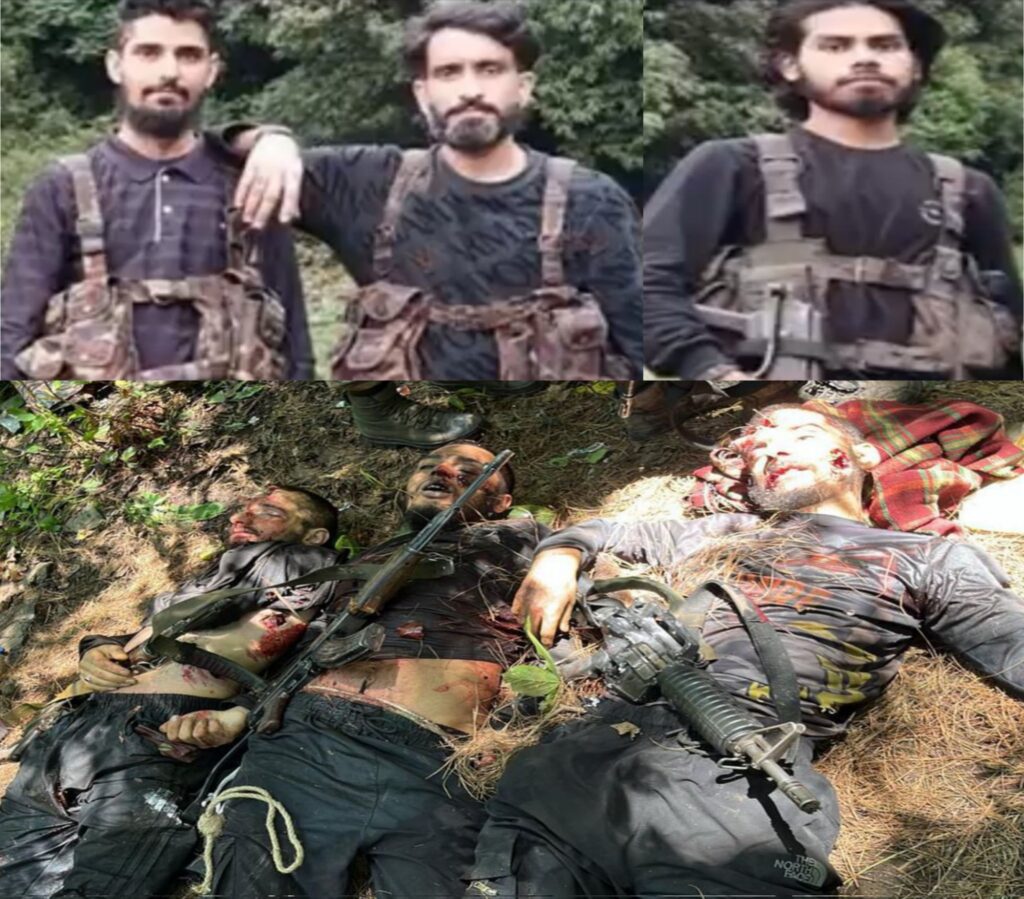On July 28, 2025, the Indian security forces launched Operation Mahadev, a meticulously planned counterterrorism mission in the rugged terrains of Lidwas, near Srinagar’s Dachigam National Park. The operation, executed by the Indian Army’s Chinar Corps, Jammu and Kashmir Police, and Central Reserve Police Force (CRPF), resulted in the neutralization of three Pakistani terrorists, including the alleged mastermind of the April 22, 2025, Pahalgam terror attack. This brutal assault in Baisaran Valley, Pahalgam, claimed 26 lives, mostly Hindu tourists, along with a Christian visitor and a local Muslim pony operator, Syed Adil Hussain Shah, who died heroically trying to shield others. The operation was hailed as a “significant breakthrough,” but its timing—just as the opposition was gearing up to grill the government in Parliament—has sparked skepticism, with many questioning whether it was a genuine victory or a politically timed maneuver.

The Pahalgam Attack: A National Tragedy
The Pahalgam attack was a grim reminder of the persistent threat of terrorism in Jammu and Kashmir. On April 22, 2025, heavily armed terrorists, later linked to the Pakistan-based Lashkar-e-Taiba (LeT) through its proxy, The Resistance Front (TRF), opened fire on unsuspecting tourists in the picturesque Baisaran Valley. The attack, captured in haunting footage by a tourist from Ahmedabad, left 26 dead and 16 injured. The nation was outraged, and the government responded with Operation Sindoor, a retaliatory strike targeting terror camps in Pakistan-occupied Kashmir (PoK), reportedly eliminating over 100 terrorists. Yet, the masterminds of the Pahalgam attack remained at large, and for over three months, the public received no updates, only silence.The National Investigation Agency (NIA) conducted extensive operations, detaining over 2,800 individuals and uncovering digital evidence pointing to safe houses in Muzaffarabad and Karachi. Two local facilitators, Parvaiz Ahmad Jothar and Bashir Ahmad Jothar, were arrested in June for providing logistical support to the terrorists, confirming their affiliation with LeT. Despite these efforts, the lack of progress in apprehending the main perpetrators fueled public frustration. Posts on X reflected growing discontent, with users questioning the government’s silence and competence. The opposition, led by Congress MP Gaurav Gogoi, seized the opportunity, preparing to raise tough questions in the Monsoon session of Parliament about the government’s handling of the attack and the failure to bring the culprits to justice.
Operation Mahadev: A Swift and Lethal Response
July 28, 2025, as Parliament convened to discuss Operation Sindoor and the Pahalgam attack, Operation Mahadev was launched in the Lidwas area near Mount Mahadev, Srinagar. The operation targeted three Pakistani terrorists—Suleiman Shah (alias Hashim Musa or Musa Fauji), Abu Hamza, and Yasir—believed to be hiding in the dense Dachigam forest. Acting on intelligence inputs, including a Chinese satellite phone detected in Baisaran on July 11 and tips from local nomads, security forces, including the elite 4 Para operatives, conducted a 14-day pursuit. The operation culminated in a fierce firefight, with the terrorists caught “napping” in a tent, allowing for a swift and decisive strike.
The Chinar Corps confirmed the neutralization of the three terrorists, recovering 17 grenades, an M4 carbine, two AK-47 rifles, and other incriminating materials linking them to the Pahalgam attack. Suleiman Shah, identified as a former Pakistani special forces commando and the mastermind, was a high-value target with a Rs 20 lakh bounty. SSP Srinagar GV Sundeep Chakravarty noted that all three were Pakistani nationals affiliated with LeT, though official confirmation of their involvement in the Pahalgam attack was pending. The operation was praised as a testament to India’s counterterrorism resolve, with Lieutenant General Pratik Sharma of the Northern Command reiterating the Army’s commitment to a terror-free Jammu and Kashmir.
The Timing Question: Coincidence or Strategy?
While Operation Mahadev was a tactical success, its timing has raised eyebrows. The operation unfolded on the very day the Lok Sabha was set to debate Operation Sindoor and the Pahalgam attack, with the opposition poised to corner the government. Congress leaders like Gaurav Gogoi and Priyanka Gandhi had been vocal about the government’s “failure” to apprehend the perpetrators, with Gogoi questioning how terrorists could reach Pahalgam despite advanced surveillance tools. The CPI(M) had called the attack a “major security lapse,” demanding accountability. The sudden launch of Operation Mahadev led to speculation, with X users sarcastically noting, “The moment Opposition prepared to raise tough questions in Parliament, suddenly #OperationMahadev began ”.
This sentiment reflects a broader perception that the operation might have been timed to deflect political pressure. The government’s silence for 97 days, followed by a high-profile operation just as parliamentary scrutiny intensified, has fueled conspiracy theories. Was Operation Mahadev the result of weeks of meticulous intelligence work, or a convenient distraction to blunt the opposition’s attack? The truth likely lies in a combination of both. The operation was indeed the culmination of a 14-day pursuit triggered by actionable intelligence, but the government’s delay in sharing updates until the eve of a critical parliamentary session raises questions about transparency and political motives.

The Bigger Picture: India’s Counterterrorism Strategy
Operation Mahadev is part of a broader shift in India’s counterterrorism approach. Since 2019, the Indian Army has adopted a “terrain dominance model,” occupying strategic peaks and disrupting terror networks’ logistical and financial supply chains. The operation’s success highlights the effectiveness of joint operations involving the Army, J&K Police, and CRPF, as well as advanced intelligence-gathering techniques like drone surveillance and intercepted communications. The neutralization of high-value targets like Suleiman Shah sends a strong message to Pakistan-based terror outfits and their sponsors, reinforcing India’s resolve to combat terrorism.
However, challenges remain. The rugged terrain of Dachigam and Lidwas, while ecologically sensitive, provides natural cover for insurgents, making such operations complex. The role of local facilitators, as seen with the Jothar arrests, underscores the need to dismantle support networks like Over Ground Workers (OGWs). Moreover, allegations of ISI-backed NGOs spreading extremism highlight the multifaceted nature of the threat. Operation Mahadev may have delivered justice for the Pahalgam victims, but it is a single battle in a long war against terrorism.



